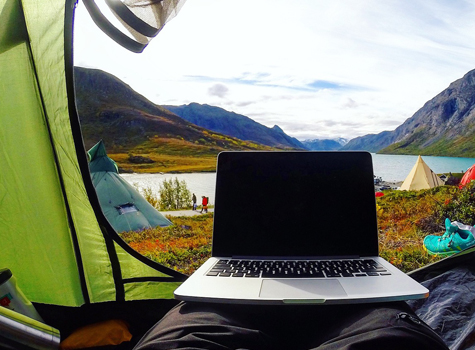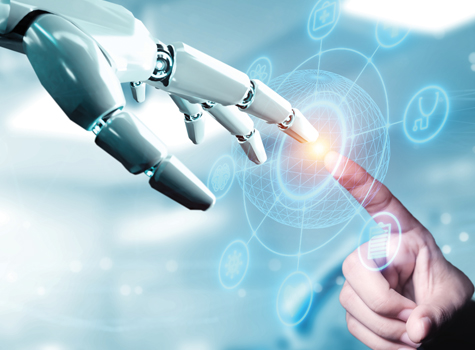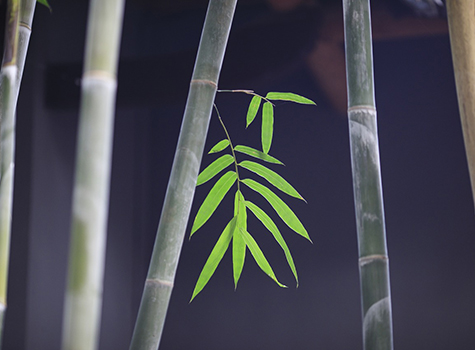
When I first landed here in 1979, I quickly learned about loneliness and insecurity. I was 18, and the nearest person I knew was across the Atlantic. I purchased very little, because I felt like I was in transit and would soon go home. In my empty apartment, my closets lay bare and I still lived out of the big brown suitcase that my mother had helped me pack when I was leaving home in Pakistan for college 8000 miles away. Every night, I would pack up and zip up the suitcase and lie on the carpet next to it, waiting for something to happen, waiting for bad news from home, waiting for my parents to call me and say they missed me and I should return tonight.
Those were desperate times when evenings became centuries and I met myself in a totally different state, clawing toward daylight, when I could at least ride the bus to college and just walk around amongst thousands of strangers.
A few days ago, an old friend of mine called me and said she had called her kids and apologized to them. It was an odd thing but many weeks sitting in my home office looking out the window, I understood what she was saying. Sometimes, the worst demons are inside of us, and these life-changing times slowly lower a dismal mirror in front of our faces to battle with ourselves.
Her point was that as a single mother, she had to spend years working, and also trying to finish graduate school, and seen her relationships with her kids slowly change.
At the time, I didn’t have much insight into her feelings as a mother and a father to her kids. Over the next few days, I started thinking about my early days in America. By my second summer trip home, I had a girlfriend and was starting to distance myself from childhood in many ways. Thinking back, those are essential landmarks: parents, whether human or animal, reluctantly and sadly let their offspring slowly venture out, learn about the world, work, hunt, take those risks that pretty much define adulthood.
As time passed, I visited home less and less. I think both my parents and I felt a sort of detachment as I finished school and started working. I knew that they really didn’t love me any less. Parents cannot do that.
In 2009, I was asleep on my mother’s bed trying to recover from jetlag, and when I opened my eyes, she was staring at me, lying a foot away in bed. We both knew she would be dead soon, but I had that immense hysteria go through my body like a shock. This was the woman in whose lap I would sleep as a kid while she was knitting sweaters and chit chatting. Yes, things change but they only adopt other faces and skins. We just adjust.
Years out from my parents’ deaths, I love them no less, and miss them no less. I am maybe scabbed around the heart, as they also had to be, as I became an adult. My father was a warm and emotional person, but the last couple of visits, I noticed that he was starting to shut down.
I knew that his silence was just a survival instinct. He was the type who would try to save the world, and maybe the entire world cannot be saved, so he narrowed his scope—maybe kids and grandkids, the domestic help and their families, a few former employees and students. He had a smile for everyone, but no more tears.
I practically live in my office in this quarantine, plagued by anxiety and insomnia, overthinking everything and distracting myself with mundane and useless activities. My friend’s call finally made me think a bit more lucidly about whether I had become my father; and perhaps I had also become like her. After all, I spent my white-collar days going to happy hour daily with a bunch of friends, traveling up and down the coast, being romantic and buying flowers and gifts for the women in my life. I was emotionally available to everyone and enjoying being alive. I liked myself. But somewhere that ended due to personal circumstances and a bad economy, and I became a robot on 12 hour shifts in a production facility. I can’t say life went well for me, but I doubt it went well for my wife and kids either. Yes, I shut down, and I took that fatal turn from working to live to living to work.
I’m old now and wonder what I was and what I have become. I wonder if I need to apologize to my family also. But in a practical sense, 95 percent of the planet probably had it tougher than me. I didn’t handle it well for many reasons. I didn’t make use of moments while waiting on long stretches of peace. The boat floated away from me, and now I float in the darkness and wonder if I should do a little more for the kids than calling them twice weekly and making sure they have food and if the cars are running okay.
My wife and I meet occasionally in this large house and discuss plans for tomorrow and then go our own ways. Yes, I have seen myself in this solitary confinement, and my emotional baggage is always packed to take me toward a deeper journey of isolation.
———-
Ahsen Jillani a former editor and publisher, is originally from Islamabad, Pakistan, and now lives in Mint Hill. He owns Must Media, a PR company focusing on both political and corporate clients.
Posted: Friday, May 22, 2020



